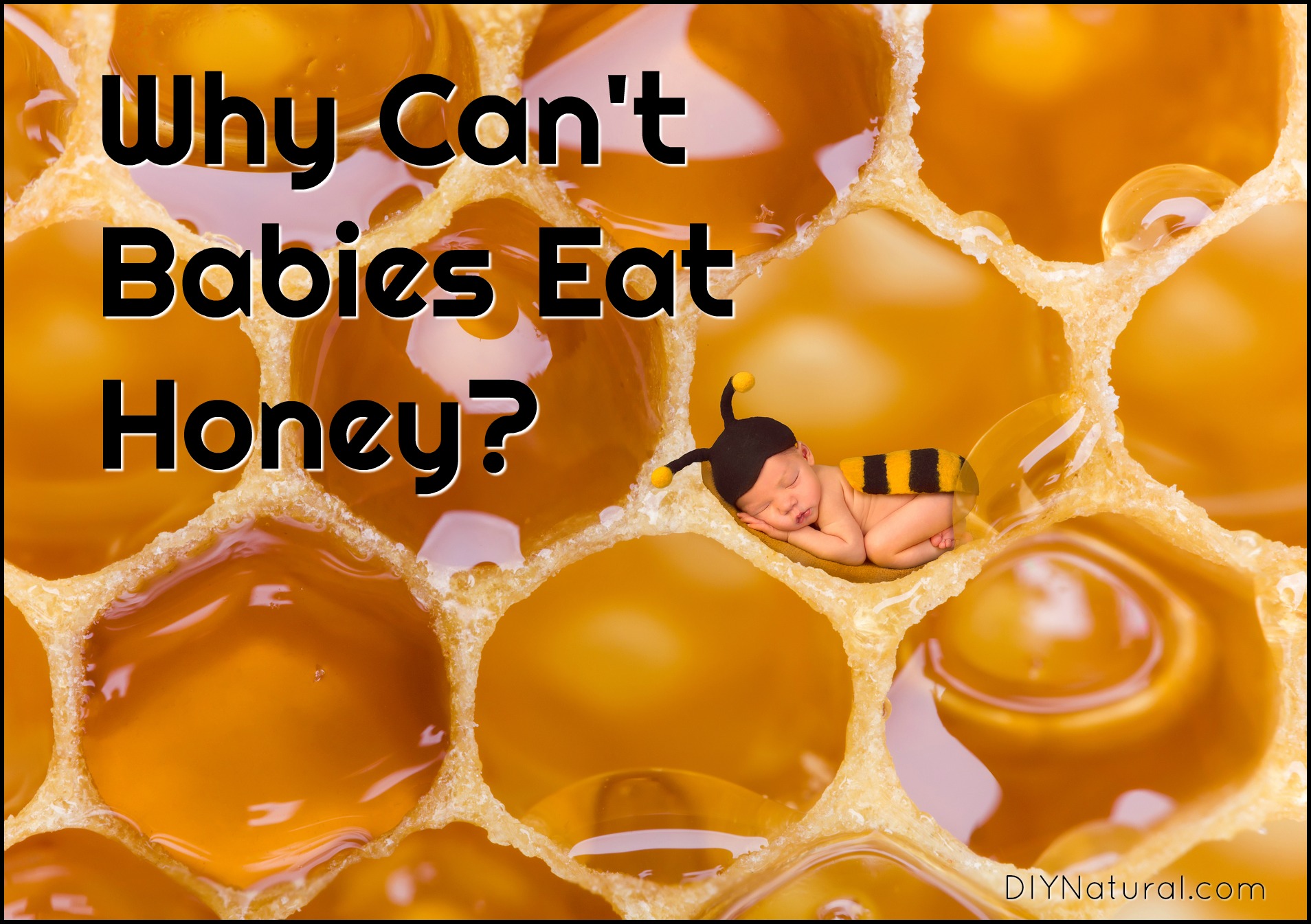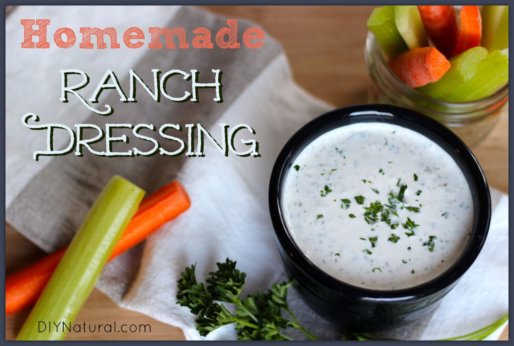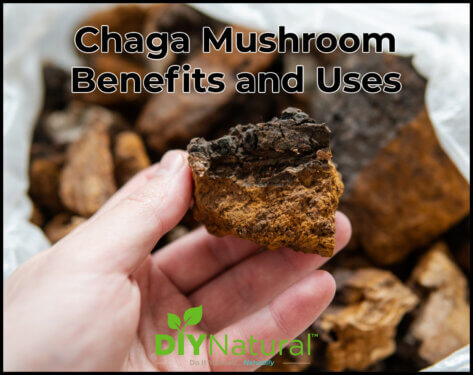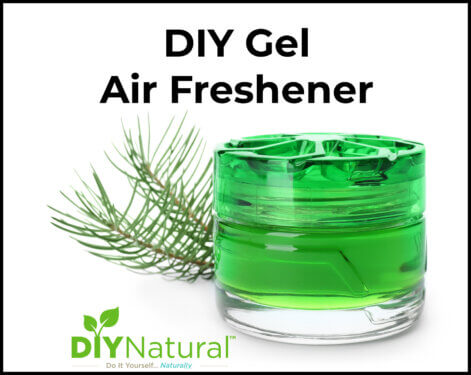
I am always shocked by what the internet “gurus” spread around as truth. Recently, I came across a post that suggested honey was dangerous to give to dogs and cats.
If you’ve heard that honey is toxic for pets, I’d like to correct that information here. It isn’t. (You can read more about it here.)
I scratched my head for a bit, trying to figure out where this particular rumor started. I believe it is rooted in a concern over botulism.
Now that we’ve settle the pets and honey debate, let’s examine the popular notion, “Why can’t babies eat honey?”
Why Can’t Babies Eat Honey?
Honey is not recommended for children under the age of one, though some are now stretching that out to age two. As this is really the only possible problem with honey it seems logical to start here.
What is botulism?
Botulism, Clostridium botulinum, is a group of bacteria that tends to hang out in the soil. When our pets or grazing animals get sick, it is most often due to rotting meat and spoiled plant materials like hay or grain.
As with many bacterial organisms, the bacterium on its own isn’t really the problem. When C. botulinum gets somewhere where there is a lack of oxygen, it starts growing. This is where the problem starts. When C. botulinum grows it sheds a toxin that is potentially deadly but also readily treated.
How do humans get botulism?
Human opportunities for infection with botulism tend to come from improperly handled food. This is the main reason why canning is such a science and needs to be done properly. Once you’ve sealed up your favorite beef chili recipe, you’ve removed access to oxygen. If you didn’t can it at a high enough temperature to kill off bacteria and there happens to be a botulism spore on something, it will grow. The toxin then fills your chili and when you eat the toxin (again, not the bacteria) you’re in trouble.
Botulism, the syndrome characterized by ingestion of the toxin, is a progressive paralysis of the nervous system causing unfortunate things in the worst cases such as an inability to breathe on one’s own.
In the case of honey, C. botulinum could potentially become a contaminant, but won’t grow. Honey is anti-bacterial, so any spores it contains will be inactive. In the adult human, or non-infant dog or cat, the average digestive system is developed enough that if a spore were to be eaten it would be destroyed before it had a chance to grow and cause problems.
Babies and Honey
In the case of an infant, the digestive tract has not developed enough to kill the spore. So, if they were to eat food with inactive C. botulinum, those spores could colonize inside the intestinal tract where there is low oxygen and reproduce to shed deadly toxin.
Botulism is incredibly rare in dogs and fairly rare in humans, accounting for only 0.1 in every million people in the years from 1990-2000. A few extra facts:
1. I have not found any definitive link between infant botulism and honey. Studies have shown that in only 15% of the cases reported was there any documented history of honey use in the home.
2. In a study to determine the prevalence of C. botulinum in honey, 25% of samples contained spores.
3. A child’s digestive tract actually develops enough to kill C. botulinum at 6 months of age.
So… Why Can’t Babies Eat Honey? Or Can They?
So why can’t babies eat honey, or can they? Well, it seems reasonable to say that some honey could be improperly handled, causing botulism contamination. But it is important to understand that this does not mean that all honey is inherently dirty or a risk.
It would have been more helpful in the 70’s when they did these studies if they had looked at the sources for the 25% of samples that had spores. Is it possible that they were simply processed in dirty facilities or mishandled in packaging? We can’t know – instead we have a blanket prohibition based on a very small sample size that only suggests a minute correlation.
What I did with My Children
I fed my toddlers the honey.
Would I give them anything imported or from someone I didn’t trust to process honey correctly, NO!
Perhaps there is more room for common sense than we thought.
*******




Thanks for posting this informative post. I’ve been reading for a
while but I’ve never posted a comment. I’ve bookmarked your blog
and shared this on my Twitter. Thanks again for a really good article!
I re-read through this piece again to be sure, but it’s not my style to suggest to anyone what they should think. In writing this article, I simply went in search of the scientific basis for the commonly held belief that honey is a botulism threat. The very things I wrote above would be what the pediatricians were taught…. I’m sorry you feel it is irresponsible to report the same facts that our doctors would base their recommendations on, but I don’t. You have made up your mind regarding what you would do and I have invited all the other readers to do the same. My own personal decision was based on the fact that I had raised the honey and knew how it had been handled and processed. For that reason, and that reason alone, I decided it was safe for my kids…. I think there are two basic takeaways here: 1. Make your own decision on available information, 2. Know the source of your food and ensure it is safe for yourself.
I am glad that your children did not contract botulism in spite of you giving them honey. However, since every pediatrician I have ever spoken with is very adamant about avoiding honey during the child’s first year, I would not do it. I think it may be a bit irresponsible to tell your readers that it is safe when it may not be. I understand your point about safety during processing. These toxins can lead to severe illness and even death. Is it really worth risking the life and/or health of your child? I don’t think so.
These same pediatricians recommend vaccinations for your child. These vaccinations are loaded with mercury and aluminum at 100’s of times above the limit set by health standards. Pediatricians only know what they were taught and they have zero time spent learning about health and healthy practices. They are clueless about vitamins too. Your choice.
I’ve always read that it was because a baby’s immune system isn’t fully developed. Since bees bring in pollen from lots of different places and since we don’t know what the mother’s feeding them have a tendency towards, it makes sense to be cautious. Most of us are severely vitamin deficient meaning that even if we eat whole organically grown foods we are not taking in enough nutrients to keep our own immune systems healthy. If a mother’s immune system is compromised when she is pregnant the baby’s will be also. Hence the need for caution with honey. Women of child-bearing age should be taking 3 multivitamins per day when not pregnant. Only a blood test will tell you how good your vitamin levels are.
Yes, as I shared above, it has everything to do with the lack of development of the immune (read digestive) system. I have never seen anyone suggest this is due to varying types of pollen…. I’d love to see a write up on that idea if you have one.
Hi Dawn,
I can’t give you any studies because they are all focused on children over the age of 1 and stop short with babies. However, I’d like to point out that it is proven, (lots of studies done), that children delivered through C-section have compromised immune systems since they aren’t inoculated via the birth canal of the mother. The babies immune system will only be as adequate as the mother’s is IF that delivery is normal.
It is unethical to do studies on babies and so there is little in the way of this information. Botulism is the ONLY thing that they can point to as a reason NOT to feed honey to infants.
Frankly, I am NOT a fan of modern medicine and avoid it like the plague. They may be good in an emergency, but they kill more people every year through proper use of medications than any other profession on earth.
I definitely DON’T need any documentation on the population of the immune system of infants via delivery, nursing and “tasting” their environment. I think we’re on the same page there. =) I was curious about the specific reference to the pollen aspect of recommendations against honey for infants. I haven’t seen anyone saying that and wanted to read what they were saying.
Hi Dawn,
It is one of those things you come across as you are reading, save to your computer, and then the computer blows a gasket and you have to start over. I’ve never been able to find the article again. I’m sure I have google to thank for that one. I apologize for not being able to supply the information. Believe me, I wish I could. I found the information fascinating and something I have not read or seen since. Since most allergies are related to a vitamin deficiency, it would make sense that if the mother was allergic, (vitamin deficient), the baby would be too. These days we have chemtrails to deal with which are both pervasive, toxic, and everywhere.
Thank you for publishing this informative article. I’ve been reading for a while but I’ve never posted a
comment. I’ve bookmarked your blog and shared this
on my Twitter. Thanks again for a quality post!